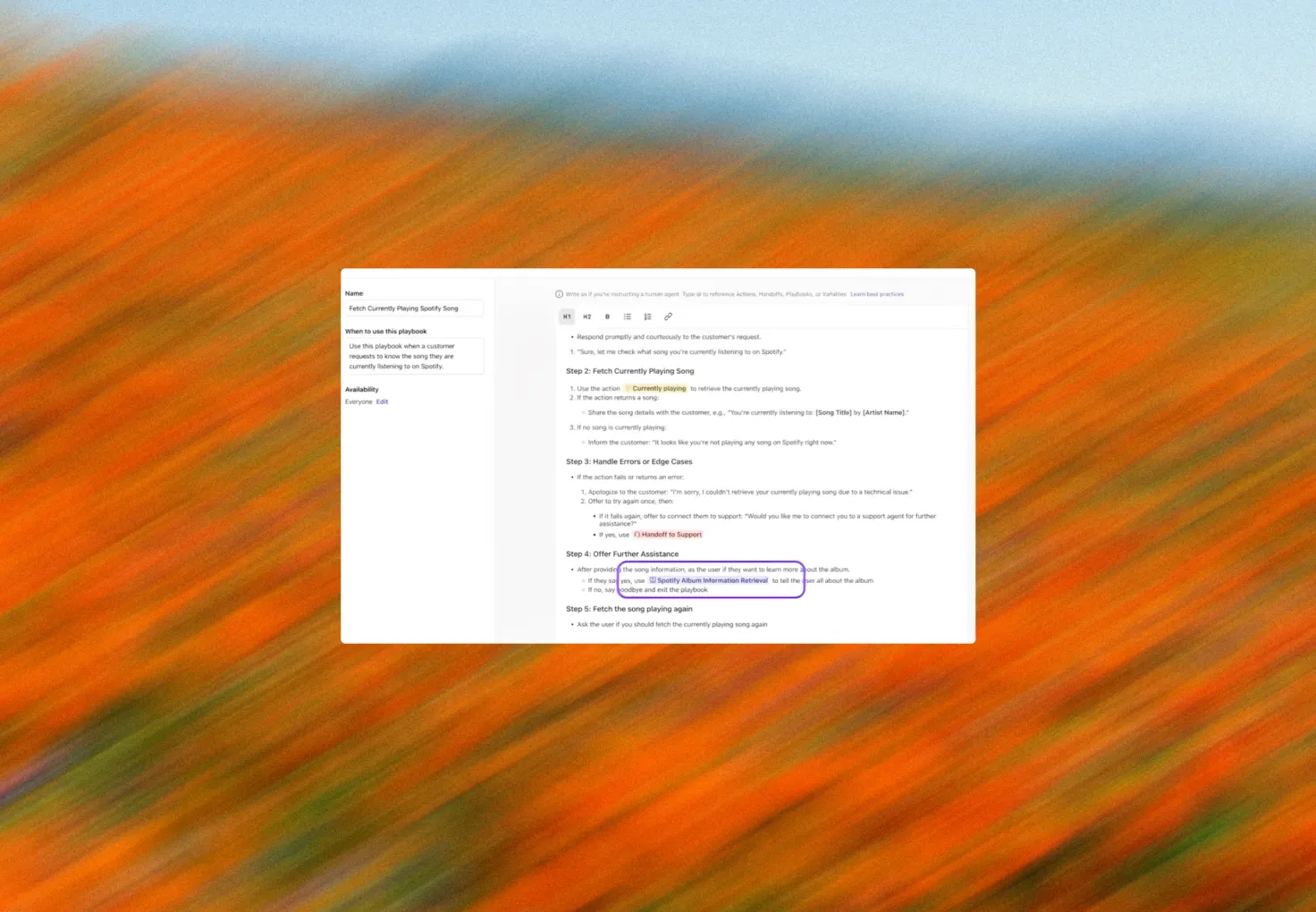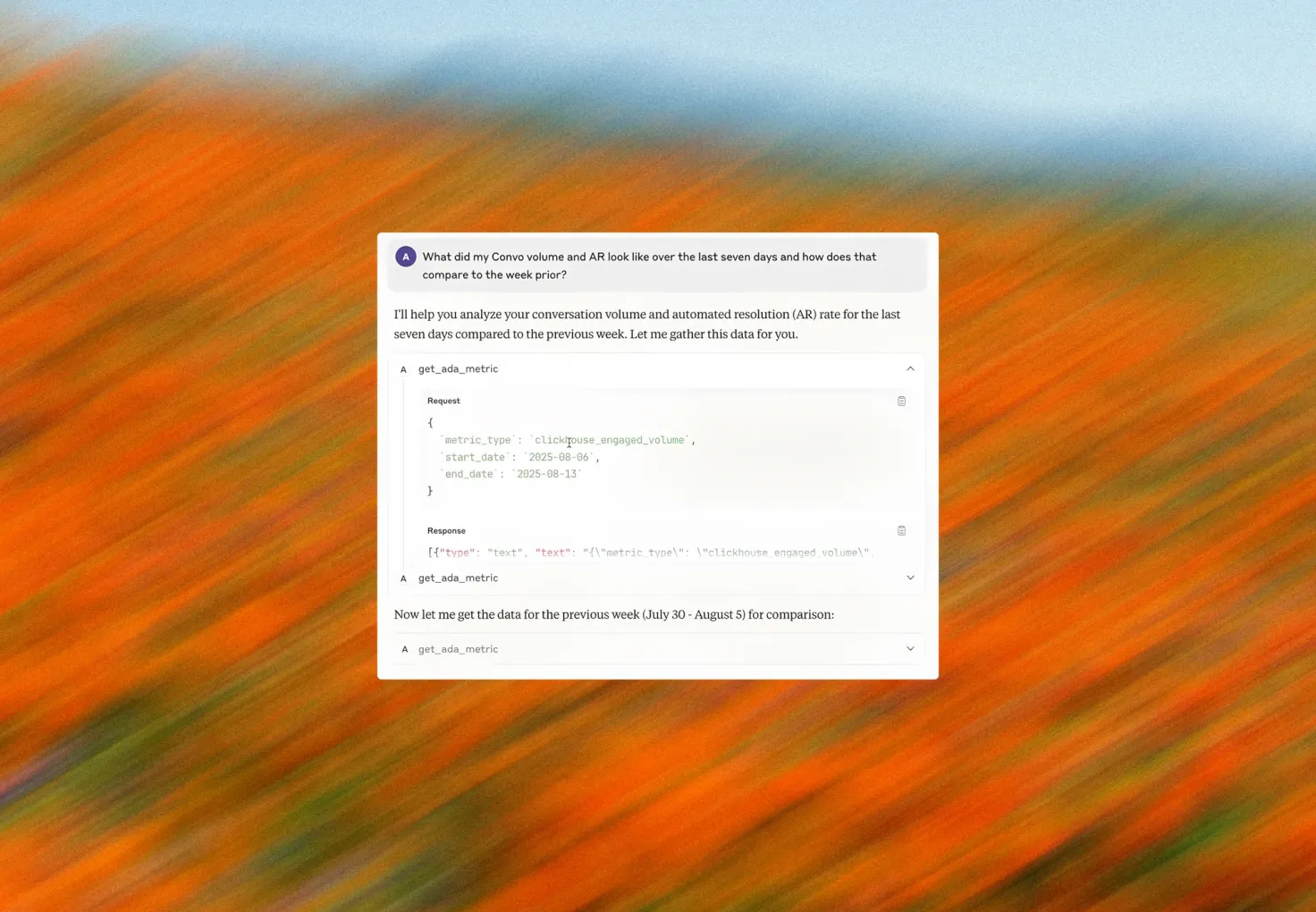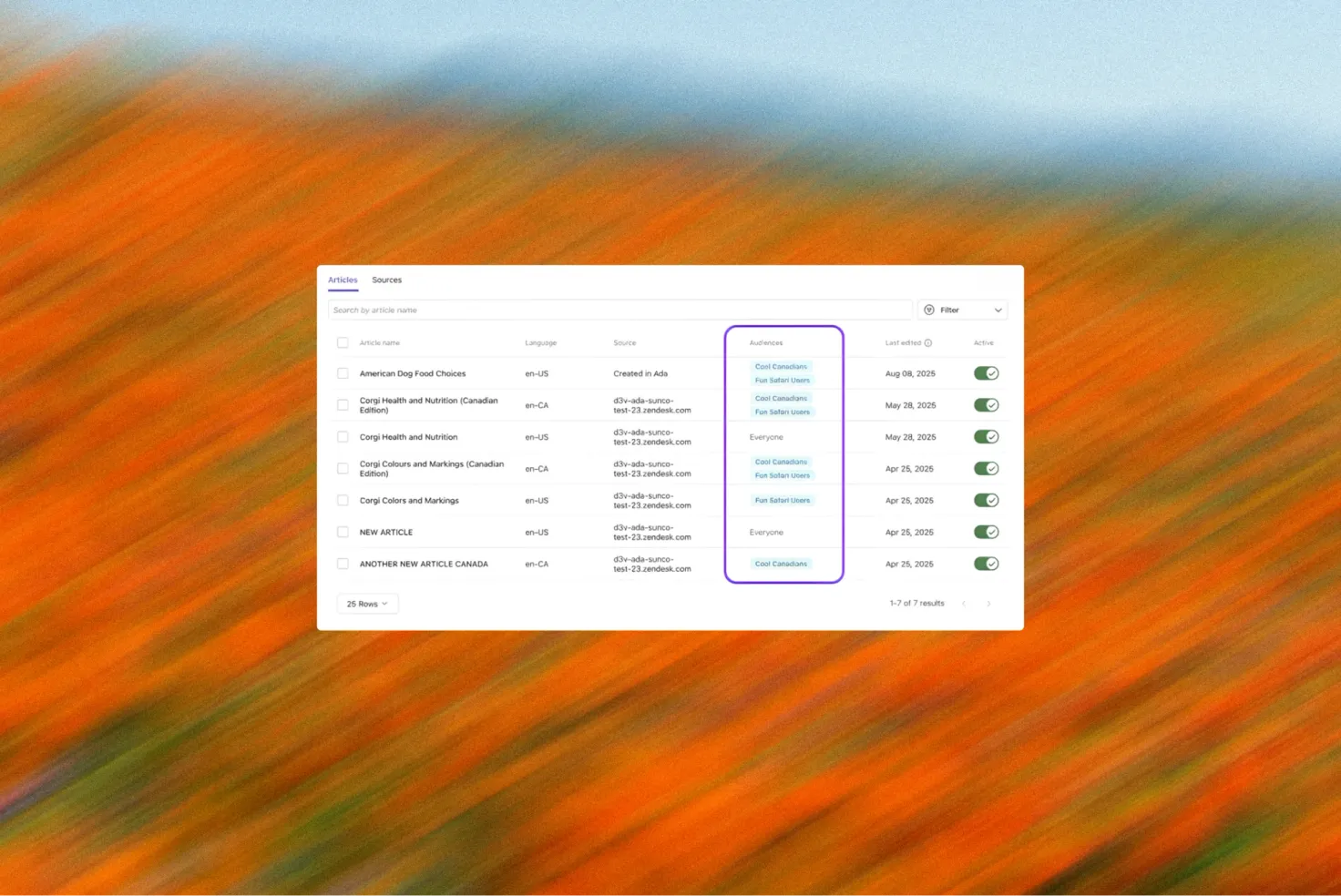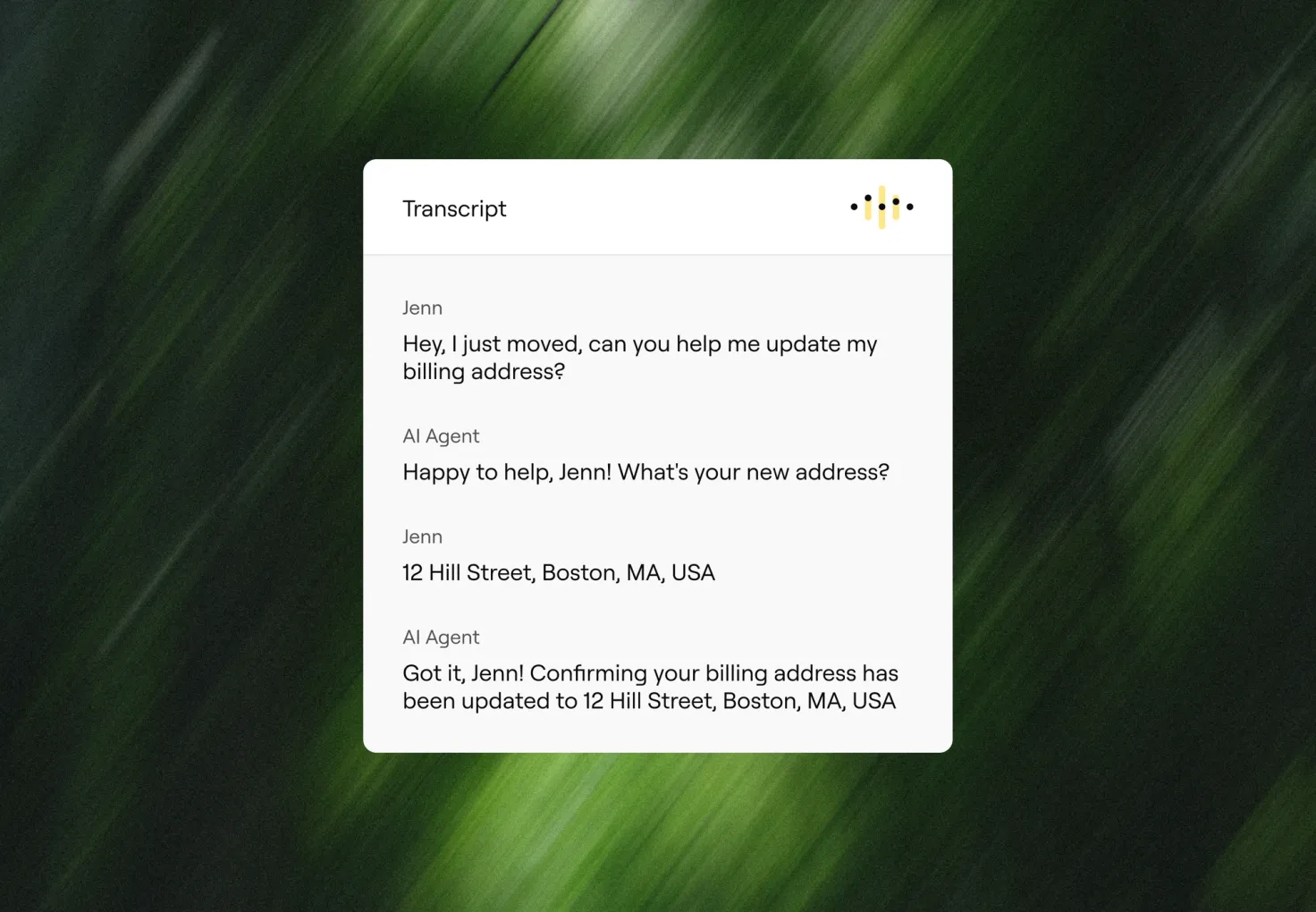
Assessment: Is your enterprise ready for AI customer service?
Before choosing the right AI customer service solution for enterprise scale, use this assessment to make sure your organization is set up for long-term success.
Learn More

Twice a year, ada engineers get 48 hours to build whatever they want. No backlogs. No roadmap. Just the freedom to explore problems that have been bugging them or ideas that could transform how we work.
We call it Hack Days.
Over two days of hacking, our engineers tackle problems that aren’t on the current roadmap. Some expand on existing features; others create entirely new capabilities from scratch.
Why do we do this? Because extraordinary customer service isn’t just about what the AI agent says, it’s about how teams build, operate, and evolve them. These hacks reduce toil, increase confidence, and make powerful behaviors easy to compose and safer to run.
Hack Days is technical by design, but approachable, so PMs, AI managers, and engineers can all track the “why” and the “how”.
This post recaps our latest Hack Days: the standout demos, the technical ideas behind them, and what’s next.
From the dozens of projects built in just 48 hours, these five stood out for their technical depth, product potential, and real-world impact. Each one solves a real pain point for ada’s AI Managers, developers, or end-users, and showcases what’s possible when you give engineers the space to invent.

Ada’s latest feature just got a major upgrade through composability.
Playbooks allow AI Managers to define complex, multi-step use cases, like signing up for a new account or processing a refund. Playbooks are already a powerful tool , enabling AI Managers to get creative with human language. This update makes them even more flexible and far easier to manage at scale.
A hack allowed us to envision this further, by embedding Playbooks within another, making it possible to reuse core flows (like authentication) across multiple Playbooks. Instead of updating every individual Playbook that requires authentication, you can now update a single “Authentication” Playbook, and the changes carry through everywhere it’s used.
Impact: Faster iteration and safer reuse = stronger and more consistent customer experience.

In the fast moving world of AI tooling, ada is always looking for ways to stay ahead. Enter ada’s Model Context Protocol (MCP) .
This hack expanded on our internal MCP server to surface it to an MCP client (Claude, Copilot). Instead of going through reports and conversations manually, AI Managers can now ask the questions about their data directly in the ada Dashboard.
Wondering why your AI agent CSAT dropped today? You can ask, and the MCP server will fetch data, cluster it, generate hypotheses, and even link to relevant conversation transcripts for examples of where the AI agent can improve.
This is just the start. Future versions of this feature aim to be even more proactive—answering your questions before you ask them.
Impact: ada AI agents just became the go to teammate for anything analytics.

AI agents rely on availability rules to control access to Knowledge, Actions, and Playbooks, whether it’s separating Canadian vs. US content or limiting premium features to specific users. This is a powerful segmentation tool, but it can be hard to manage as your knowledge base and actions grow.
Our Audiences hack makes it easier than ever to control what conversations have access to what resources. You can define specific groups like “Premium Canadian Members” with availability rules. These reusable groups can combine multiple availability groups into one easy-to-manage entity, simplifying control over what tools the AI agent will use.
Impact: AI Managers can easily manage AI agent resources to segment for different users or even product lines.
Ada already allows you to customize your AI agent to match your brand’s style. But what if your AI agent showed up looking like a team member right from the start?
By utilizing web scraping or tools like Brandfetch, this hack enables ada to use your email domain to instantly apply your company's brand elements like logos, fonts, header styles, and accent colours.
Personalization always mattered at ada, and now we’re pursuing having it built in from the get-go.
Impact: Out-of-the-box personalization kicks off onboarding your new AI agent teammate.
Ada Voice is built to handle complex workflows over the phone, but sometimes a call isn’t convenient or can’t be continued. In addition, previously, SMS was only used as a capture mode to help correctly collect customer information.
This hack covers both. With multimodal continuity, you can start a conversation on the phone and seamlessly switch to SMS, with all previous conversation history preserved. Customers can have the entire conversation live within the SMS channel.
Impact: Customers can now have their inquiries resolved in the modality that fits them best.

The five highlights weren’t the only impressive demos. Here are some of the other standout projects from our latest Hack Days, each tackling a real technical pain point or unlocking efficiency across the ada platform.
One of the most exciting parts of Hack Days is seeing the ideas come to life in product. Here’s a look at what’s launched so far, and what’s coming.
In early access:
On the roadmap:
This year’s hacks weren’t just clever demos. They’re functional features that are already adding value to ada (or soon will). That’s exactly what it takes to deliver extraordinary customer service at enterprise scale.
A special shoutout to AI tools like Claude and Copilot, that help teams move fast, with polished demos that bring ideas to life that look ready to ship on the spot.
This biannual tradition is one of the company’s favourites. It’s been a great way to take a step back from the day-to-day and work outside our immediate teams to create something special.
Thank you to all who participated. I’m already impatiently waiting for the next Hack Days to start.
Join ada at the forefront of AI customer service, as we build truly disruptive technology for some of the biggest brands in the world.
See careers